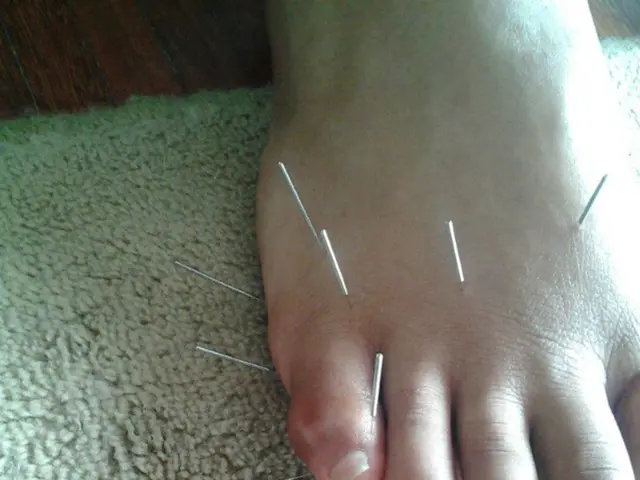Unconventional association between vitamin D and contraception discovered
Let's Talk Vitamin D and Birth Control
Vitamin D plays a crucial role in maintaining the right balance of calcium and phosphorus in your blood, and it helps your body absorb calcium, a vital component of bones. You can find plenty of it in foods like fish and eggs, but around 90% of your vitamin D comes from the skin, thanks to a chemical reaction caused by exposure to sunlight.
Vitamin D deficiency can lead to problems like rickets and osteomalacia (softening of the bones). Since vitamin D is essential for bone formation, it's particularly important during pregnancy.
Curious about the link between vitamin D and birth control? That was the question Dr. Quaker E. Harmon, from the National Institutes of Health's National Institute of Environmental Health Sciences, set out to answer.
Vitamin D and Contraception
To find some answers, Dr. Harmon and her team analyzed data from the Study of Environment, Lifestyle, and Fibroids (SELF), which investigates reproductive health. They focused on almost 1,700 African-American women living in and around Detroit, MI, aged 23-34.
The study asked women about their contraceptive use and outdoor time, as well as whether they took vitamin D supplements. In total, 1,662 women provided blood samples to measure their levels of the most common circulating form of vitamin D, called 25-hydroxy vitamin D.
The researchers discovered that women using contraception containing estrogen had higher vitamin D levels than other women. Even after accounting for factors like seasonal light exposure, this connection remained significant.
"It appears that contraceptives containing estrogen tend to boost vitamin D levels, and those levels drop when women stop using contraception," said Dr. Harmon.
After adjustments for confounding variables, women using contraceptive pills, patches, or rings containing estrogen had about 20% higher levels of 25-hydroxy vitamin D compared to other participants. It's worth noting that current users of birth control had higher vitamin D levels, while past users had average vitamin D levels.
Vitamin D Deficiency in Early Pregnancy
These findings, published in the Journal of Clinical Endocrinology & Metabolism, raise concerns about women becoming deficient in vitamin D as they try to conceive and during pregnancy. Dr. Harmon advises women planning to stop using birth control to ensure their vitamin D levels are appropriate.
However, why does estrogen-based contraception affect vitamin D levels? Dr. Harmon explained that further research is necessary to understand this connection. Additionally, she plans to continue studying this group of women and is working with another group to investigate how vitamin D varies across the menstrual cycle.
Lastly, Dr. Harmon mentioned that while the study focused on African-American women, the same association has been observed in women of different racial backgrounds. Therefore, she believes that the link between estrogen-based contraception and vitamin D levels is not tied to race.
- In the study of women's health, nutrition, and reproductive health, Dr. Harmon and her team found that women using contraception containing estrogen had higher levels of vitamin D.
- The study, which focused on nearly 1,700 African-American women, revealed that current users of birth control had approximately 20% higher levels of 25-hydroxy vitamin D compared to other participants.
- Due to the connection between estrogen-based contraception and higher vitamin D levels, women planning to stop using birth control are advised to ensure their vitamin D levels are appropriate.
- Dr. Harmon is planning further research to understand the connection between estrogen-based contraception and vitamin D levels, as well as to investigate how vitamin D varies across the menstrual cycle.
- The connection between estrogen-based contraception and vitamin D levels has been observed in women of different racial backgrounds, suggesting that this link is not tied to race.
- The findings from this study highlight the importance of women's vitamins and multi-vitamins, as vitamin D deficiencies in early pregnancy can lead to problems like rickets and osteomalacia, which are particularly harmful during bone formation.







